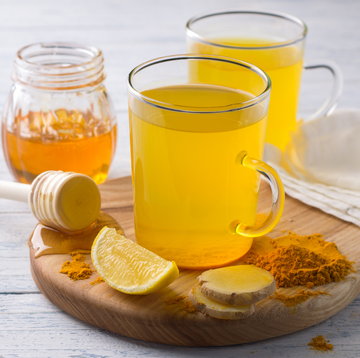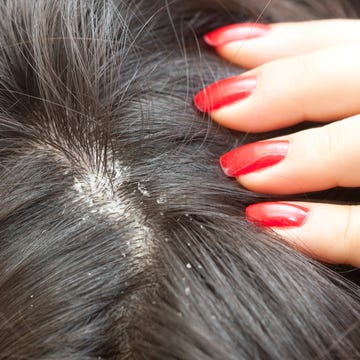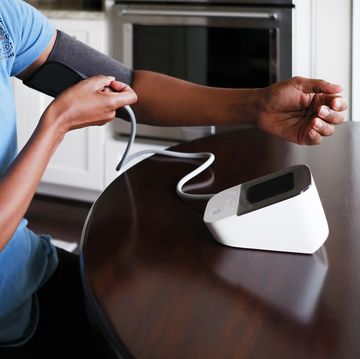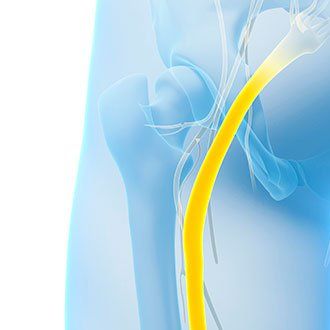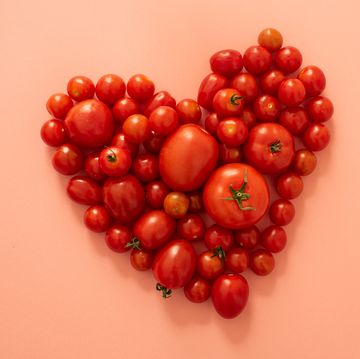If you've made red wine your go-to adult beverage because you think it's the healthiest alcohol—or because you associate beer drinking with Homer Simpson, fraternity parties, and a bloated gut—it's time to rethink your drink. Swedish researchers have found that beer may protect your heart.
The study, published in the Scandinavian Journal of Primary Health Care, followed 1,500 women for nearly 50 years, charting their intake of beer, wine, and spirits and their ensuing incidence of heart attacks, stroke, diabetes, and cancer. By the end of the study, the women who drank beer "moderately"—which the researchers defined as once or twice a week at most—were 30% less likely to suffer a heart attack, compared with both heavy drinking and abstainers.
"This study suggests that when consumed a couple of times a week, beer may lower heart attack risk more so than wine," says Andrea Giancoli, RD, an L.A.-based registered dietitian and beer enthusiast. "We don't know yet if there are ‘magic' ingredients or compounds in beer. But beer does contain a complex of nutrients that may possibly play some role in helping avert atherosclerosis, the hardening of the arteries that can lead to heart attack and stroke, if—and that's a big if—it's consumed in moderation and responsibly." (Looking to take back control of your health? Prevention magazine has smart answers—get a FREE trial issue + 12 FREE gifts.)
While it's really too early to make any specific recommendations, these findings echo those of earlier studies, including one in 2013 from Greece's Harokopio University, showing that beer increases the flexibility of arteries. A 2011 study in the European Journal of Epidemiology found that beer came out ahead of wine in terms of cardiovascular protection—wine was 31% protective at 21 g a day, and beer was 42% protective at 43 g a day.
MORE: Top 10 Cholesterol-Fighting Foods
Key nutrients might make beer a heart-healthy choice—if you drink moderately. According to the USDA, that's one 12-ounce bottle of beer a day for women, two for men. "Just don't save up all seven drinks for Friday night," Giancoli says, "or you'll overload your body, erase any potential health benefits, and possibly even cause damage."
Check out these other health perks beer is associated with, plus our suggestions for the brews that deliver:
It's linked to lower kidney-stone risk. Beer is up to 93% water, by some estimates. "It's head and shoulders above wine in terms of water content," Giancoli says. "You get a lot more fluid, so it's more hydrating, and that may have some protective effect." Beer can also have a diuretic effect, which may be why beer drinkers seem to have a lower risk of kidney stones than those who go for the harder stuff. It's been speculated that hops may slow the leaching of calcium from bones, which is linked to kidney stones. In a 2013 analysis, researchers from Brigham and Women's Hospital in Boston found that regular beer swillers had a 41% lower risk of developing kidney stones.
Brew to buy: Go for the lighter beers, which have the most water. Giancoli suggests Samuel Adams Light Lager and Pacifico, a Mexican pilsner, both great-tasting drinks that have less than 140 calories.
MORE: 3-Day Diet Detox
Beer may contribute to bone strength. Silicon, or orthosilicic acid, may fortify the skeleton. When a team at the University of California, Davis, analyzed 100 commercial brews, they found that the hoppier beers were a significant source of dietary silicon, which helps promote bone formation. Two beers may provide as much as 30 mg of the nutrient—most people get 20 to 50 mg per day. An earlier study from Tufts Medical Center showed that men and postmenopausal women who drank one to two drinks a day had greater bone mineral density in their hips and spine than nondrinkers. Hoppy beers, like pale-colored malts, have more silica than the darker brews.
Brew to buy: India Pale Ale (IPA), with 41.2 mg of silicon, per the Tufts study
Drinkers have a lower risk of type 2 diabetes. Since drinking beer increases the production of bile, it can help us digest fatty foods more efficiently. In a 2011 study from Harvard School of Public Health, middle-aged men who upped their beer habit to one or two glasses per day saw their risk for type 2 diabetes fall by 25% over 4 years. The researchers chalk up the effect to improved blood glucose levels and increased levels of adiponectin, a hormone that boosts insulin sensitivity.
Brew to buy: Michelob Ultra Amber, a red beer that's low in calories (114) and carbs (3.7 g)
...And lower cholesterol levels. Though you won't find this info on the label—the USDA Nutrient Database lists beer's fiber content as zero—a Spanish study confirmed that beer contains beta-glucans, a type of soluble fiber that's been shown to lower cholesterol. Dark brews may contain up to 3.5 grams of soluble fiber per liter and lagers contain up to 2. "The darker the beer, the more fiber it may have," Giancolo says, so choose stouts and porters to fiber up.
Brew to buy: Guinness Draught, a traditional Irish stout with 3-plus grams of fiber, compared with the 2 grams or less found in lighter beers
MORE: 9 Highly Effective Soultions For Yeast Infections
There are actual nutrients in there. Beer contains calcium, magnesium, selenium, phosphorus, iodine, potassium, and heart-healthy B vitamins—B6, B12, and folate. "A regular beer has about 3% of the recommended adult intake of vitamin B12, making this beverage one of the very few plant sources of this important nutrient," Giancoli says. "That's good news for vegetarians." One 12-ounce brew also provides around 12.5% of your daily dose of B6.
Brew to buy: Cantillon Rose de Gambrinus, a Belgian beer loaded with raspberries and extra vitamin C for a crisp fruity flavor and big antioxidant punch, or Lambrucha, a tart lemony beer that's combined with kombucha tea for extra vitamins B and C
Beer could help prevent sun damage. Thanks to barley and hops, beer also contains phytonutrients, namely ferulic acid. This plant compound is a powerful antioxidant that may scavenge free radicals in the body before they can start causing oxidative damage. While there are phytonutrients in other foods we eat every day—tomatoes, corn, and rice bran, for example—research shows that we absorb it better from beer.
Brew to buy: Sierra Nevada Pale Ale, which is heavy on the hops so it has more phytochemicals, or Japanese Green Tea IPA, grown with a variety of French and Japanese hops



